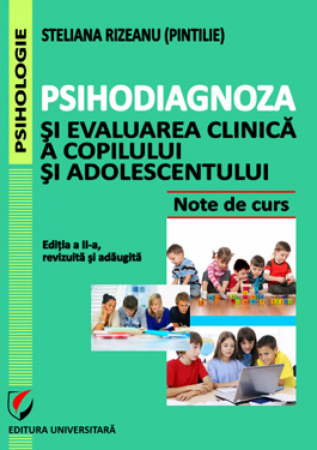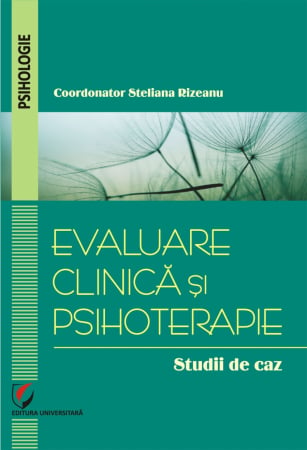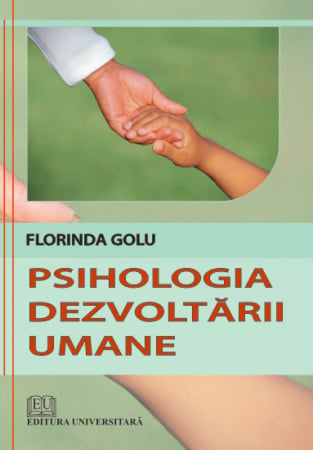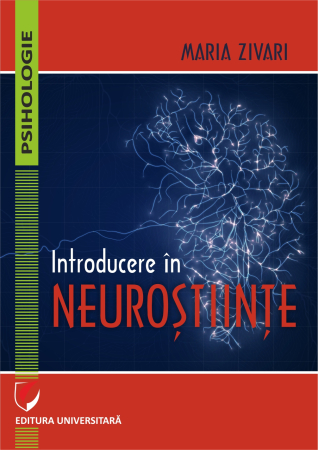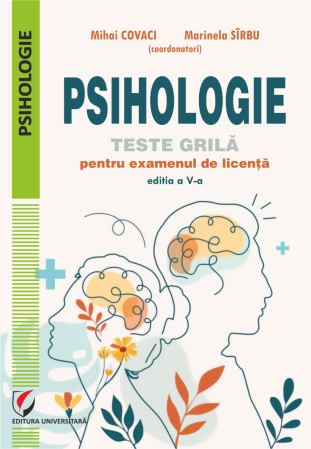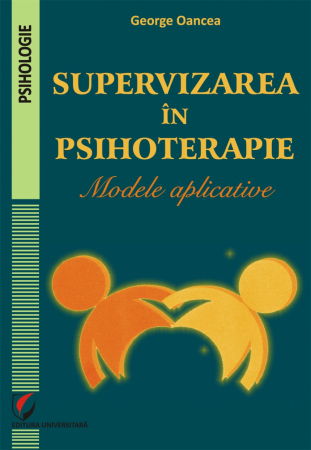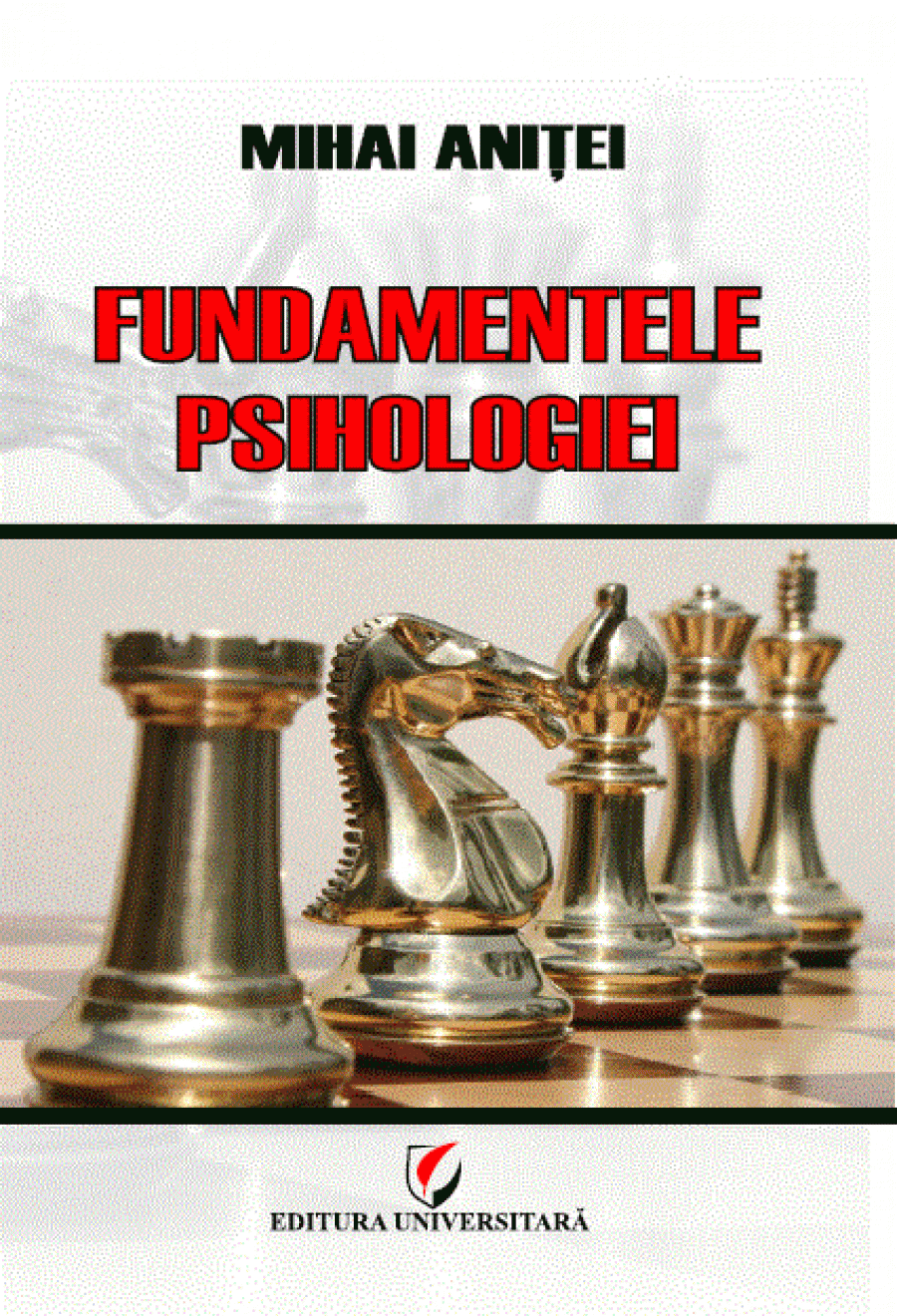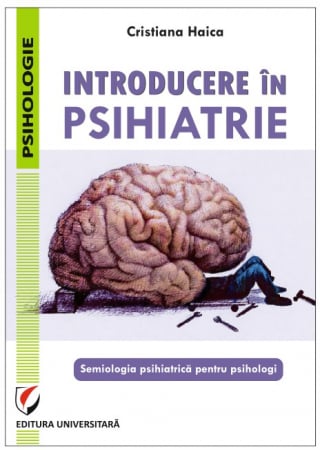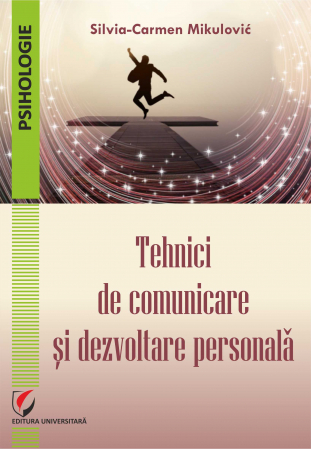ISBN: 978-606-28-1167-9
DOI: https://doi.org/10.5682/9786062811679
Publisher year: 2020
Edition: I
Pages: 266
Publisher: Editura Universitară
Author: Speranta Farca
- Description
- Download (1)
- Authors
- Content
- More details
- Reviews (0)
The fear of the unknown is a natural stage of our development. By exploring it, we can get along at different ages and be with our young children and teenagers.
The relationship we have with foreigners shapes us more than we think. It helps us answer some questions about ourselves:
• Why are we sometimes insecure and aggressive, intolerant and rigid?
• Why do we need to put labels and fight?
• How do we anticipate the future, plan it, make projects?
• What makes us laugh out loud, play, have a sense of humor?
• Why do we surprise, why do we explore?
• Why are we cautious?
-
About the fear of the unknown
Download
SPERANTA FARCA - psychoanalyst, associate professor doctor at the Department for Teaching Staff Training of the National University of Arts, Bucharest
Author of the books: The independence of the child • The birth of the child • My favorite kindergarten! • My child goes to school! • How we welcome the child as parents, grandparents, doctors and educators • What the child lives and how his mother feels • Psychoanalysis and the four ages of the self.
How the fear of the unknown appears / 9
How many huts, as many fears / 11
No fear before love / 16
Indicators of lived fears / 17
Mother and stranger / 20
The Sphinx of Thebes - about consistency / 21
The good fairy - about consistency / 22
Reed in the wind - about flexibility / 24
The sword of Damocles - about responsibility / 25
Procust's bed - about availability / 28
What is written on your forehead is put on you! - about trust / 30
Ana lui Manole - about sacrifice / 33
Who is the unknown / 36
The foreigner / 36
The foreigner as an external landmark / 39
The unknown average / 43
The estranged acquaintance / 46
Pre-known aliens / 47
The stranger, a misunderstanding / 49
The strangeness of the stranger / 51
The unknown within ourselves / 53
The stranger in the mirror / 54
Alienation by repression / 58
Beyond the body boundary / 68
The unknown as ignorance / 74
The archetypal alien / 82
The child / 82
The teenager / 88
Emblem / 110
The product / 113
The seller / 116
The traveling companion / 119
Pribeagul / 121
Hero / 123
The symbolic - construction generated by the fear of the unknown / 126
Anticipation / 129
Magic Anticipation / 132
Mystical anticipation / 140
Mythical anticipation / 143
Scientific anticipation / 146
Amusement / 148
Laughter "roller coaster" / 150
Laughter joke / 152
Laughter-crying / 153
Laughter flight / 155
Shield laughter / 156
Laugh broken shard pot / 157
Laughter of the world./ 158
The game / 162
The game with sensations / 163
The game "an-tan-te" / 164
The game of "mime" / 167
Identification game / 169
Control game / 170
The game of surprise / 172
Rehearsal game / 175
The game-creation / 178
The adult game / 179
The gift / 181
Pandora's Box / 181
Body and soul / 183
The Talisman / 184
The Trojan Horse / 186
The mirror of desire / 188
Giving / 189
Ambivalent / 191
The idea of predestination / 194
Denying one of the tendencies / 195
Moralization / 197
Sequencing / 198
Weighting / 199
The entry / 199
Objectification / 200
Defense mechanisms specific to the fear of the unknown / 202
I'm scared, so I'm getting stronger! / 203
I know who I am / 203
I only change if I can / 205
I don't need anyone or anything / 208
Danger is not always what it seems! / 212
I don't see, I don't hear, I don't know! / 213
Life in pink / 215
A face and a name / 218
There are only eyes / 221
Fuga / 224
It matters how I feel! / 249
Bag, because you don't see me! / 249
All on the spot, on the spot, on the spot! / 250
A lived fear remains active / 252
Someone up there is scared! / 254
What's mine is set aside / 254
Prohibition - an exhortation / 256
"Nay; yes ”/ 259
We are not alone / 260
Bibliography / 263
The newborn cannot survive extrauterine without a mother to tell him his existence in this world too strange for him. In the intrauterine world there were other laws, there were other sensations, and here, the needs are urgent and the pain threshold is quickly reached. Due to the inability to orient, the child is overwhelmed and awakens in every respect the desire for protection. The mother has to be vigilant with all the mammals around that are ready to replace her.
The baby will understand how this world works as the mother organizes a living environment that remains unchanged, with rhythms that prevent him for what follows. As soon as the world becomes intelligible to him, the child can feel protected and loved. The feeling of security helps him to relax, but also to feel fear.
The small child cannot yet anticipate the change and that is why any novelty disturbs him. In order to calm down, she needs her mother to give her, through her nonverbal expressions, information about what is happening.
The child's world is divided into two: a safe, predictable mother-world and a foreign, tempting, but also dangerous mother-world.
H. Hesse describes the two worlds in which the child lives: “A world belonged to the parental home [...] it was called Mother and Father [...] In this world there were straight lines and paths that led to the future [.. .] The other world started from the bosom of our own house and was completely different [...] In this second world [...] there is a wave of terrible, attractive and awful, impenetrable things ”(H. Hesse, Demian).
The known world is full of habits, people, objects and states already lived. It is a space where the child feels protected, surrounded by people able to meet his needs. The safer and more stable this space is, the more tempting and desirable the world outside it will become.
The unknown world consists of new experiences, of surprising events. It is a world that includes the known in its unknown parts and that extends beyond the space that can be anticipated. The unknown promises interesting experiences, but it is also potentially dangerous, which causes the formation of a cautious attitude. We all oscillate between a known world, which represents us, and a foreign one, in relation to which we learn to carefully weigh our enthusiasm, but also to control our fear. Meeting new people, we are put in the situation of combining the two worlds. No one is totally foreign to us. In each peer we can find ourselves due to the fundamental experiences we have in common. We all lived in an intrauterine world, we were all born, we were breastfed and weaned, we went out into the world, we adapted to a community, we learned to communicate, to establish relationships, to take care of ourselves and by others. We all need security, love, personal manifestation, symbols and taboos. But what brings us closer also alienates us. Each of us is formed by the experiences lived subjectively, by the groups we belong to, by the culture we belong to. We also all have personal reactions to what is happening to us. Thus, an event is lived differently by each of the participants. The fear of the unknown does not only signal an external danger. It also occurs when we ourselves are changing: when we move into a new stage of existence, when we lose or when we gain something.
In psychoanalysis, the first noticeable change of the patient is often announced by an attack on the psychoanalytic framework whose endurance is being tried. The patient struggles to change the rules so as not to change himself. It's like saying: It's easier to change something outside than inside. If I change, I will be a stranger and I am afraid. Here is a justified fear that needs to be analyzed. A change of setting would bring much unpredictability, increasing fear. Too sudden a change in the patient would strengthen the resistance. This is how the symbolic framework, as an element of psychoanalytic technique, becomes essential in the confrontation with the fear of the unknown.

6359.png)
![About the Fear of the Unknown [1] About the Fear of the Unknown [1]](https://gomagcdn.ro/domains/editurauniversitara.ro/files/product/large/coperta-1-frica-3003-2940.jpg)
